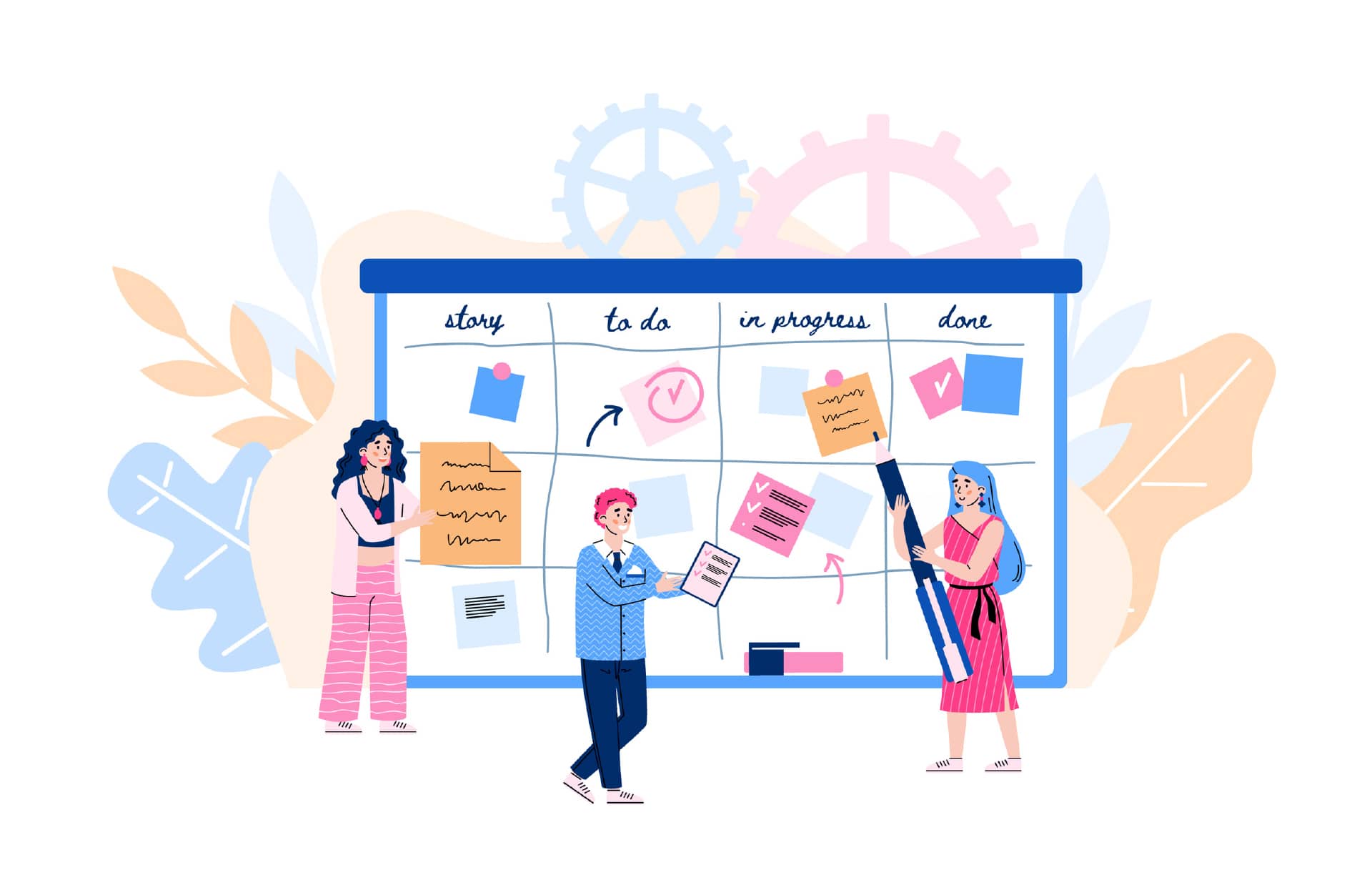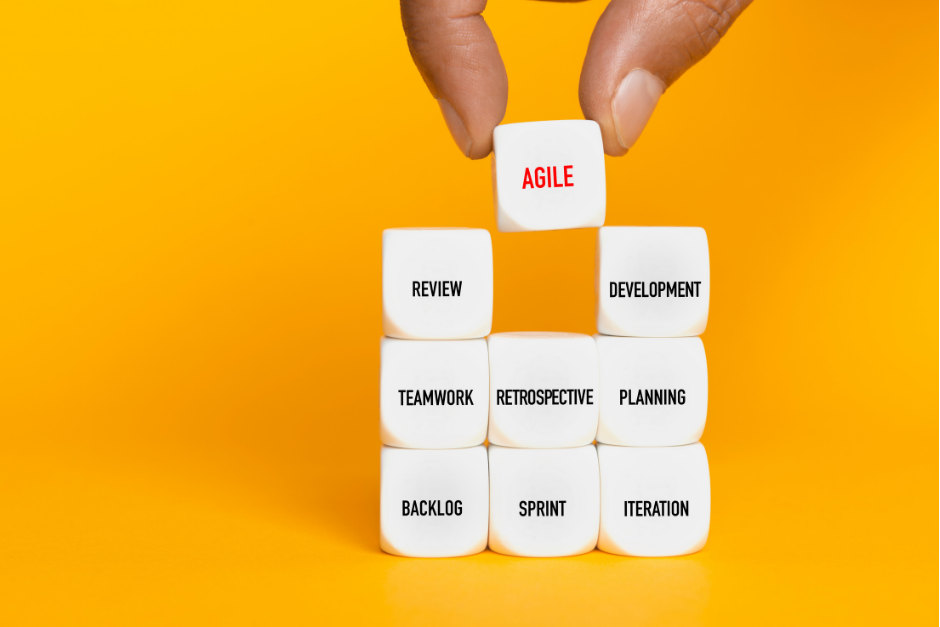Agile, SCRUM, user story, backlog — these are terms IT teams know well, but they often seem like another language to those outside of software development. For those unaware, all these terms fall under the Agile method umbrella, a particular project management concept that can often seem unapproachable to those who know little to nothing about it. However, this methodology isn’t exclusive to the IT industry.
Agile skillsets and frameworks are transferable to almost any non-IT project or team, meaning your industry can also benefit from this way of working. We’ll share how in the blog below, but first:
What Is Agile?

Put simply, Agile is a detailed, highly collaborative approach to successfully completing projects. By implementing this step-by-step method, teams do away with delivering projects all in one go without input from users or other team members. Instead, large projects are broken down into small, more easily achieved deliverables that can be easily tracked and shared with other team members.
For example, when developing new software, IT teams divide the functionalities they believe end-users would like to see into individual “user stories.” Devs then work through these user stories in quick succession, getting feedback after each one has been completed to help push the project forward while always keeping the end-user in mind.
So how can this project management style benefit the non-software development world?
3 Benefits of Agile for Non-IT Teams
Better To-Do List Management
Any significant project will start with a to-do list of every task that must be done to successfully complete your end goal. This end-goal could be anything: a marketing campaign, a housing project, a product launch, an event — you get the idea. Agile frameworks show you how to break up bigger tasks into more manageable jobs that can be easily prioritized and assigned to particular team members. From here, you’re in a better position to track and measure the overall progress of the project as well as individual tasks and share this with your team. You’ll avoid major delays or disruptions while ensuring everyone knows where each other stands.
Improved Communication & Strengthened Relationships

One of the foundational elements of Agile projects is the continuous productive collaboration amongst a team. Often, collaboration happens in the brainstorming phase before everyone goes off to do their individual tasks. But with an Agile mindset, everyone comes back to the table after a task is finished to provide critical feedback that can better shape your project as it moves forward. Through this regular back-and-forth process, teams learn to communicate better to avoid confusion and miscommunication. This, in turn, can help foster more genuine relationships amongst each other.
Easily Adapt to Change
There’s a reason it’s called Agile project management: Employing this methodology ensures your team more easily adapts to future change — and there’s always change. Agile is built on the premise of flexibility and fluidity, as you can see by the Agile manifesto. Despite the IT language, this boils down to paying more attention to people than processes, even if you’ve spent hard-earned money on processes that work. The reality is that customer demands change, and you must be able to pivot to meet that change quickly. Following Agile’s four pillars can help you achieve that.
Personal Benefits
It should be noted that there’s a significant pay-off for individuals looking to do Agile training. By becoming a certified Agile professional, you’ll see career advancement, enjoy more credibility, gain new knowledge, and, perhaps most importantly, have the practical skills needed to improve dynamic workplaces. Want to know more? Check back in next month for a follow-up blog on the personal benefits of Agile certification training!
Our courses focus on providing real-world skills that can be used immediately, meaning you can walk out of our classroom with a full tool belt of skills you can utilize the next day. Whether you’re an IT pro or are interested in Agile for non-IT projects, our courses can equip you with the knowledge you’ll need to better any team you join.
Download the Welcome Pack for our popular entry level DASM course!






